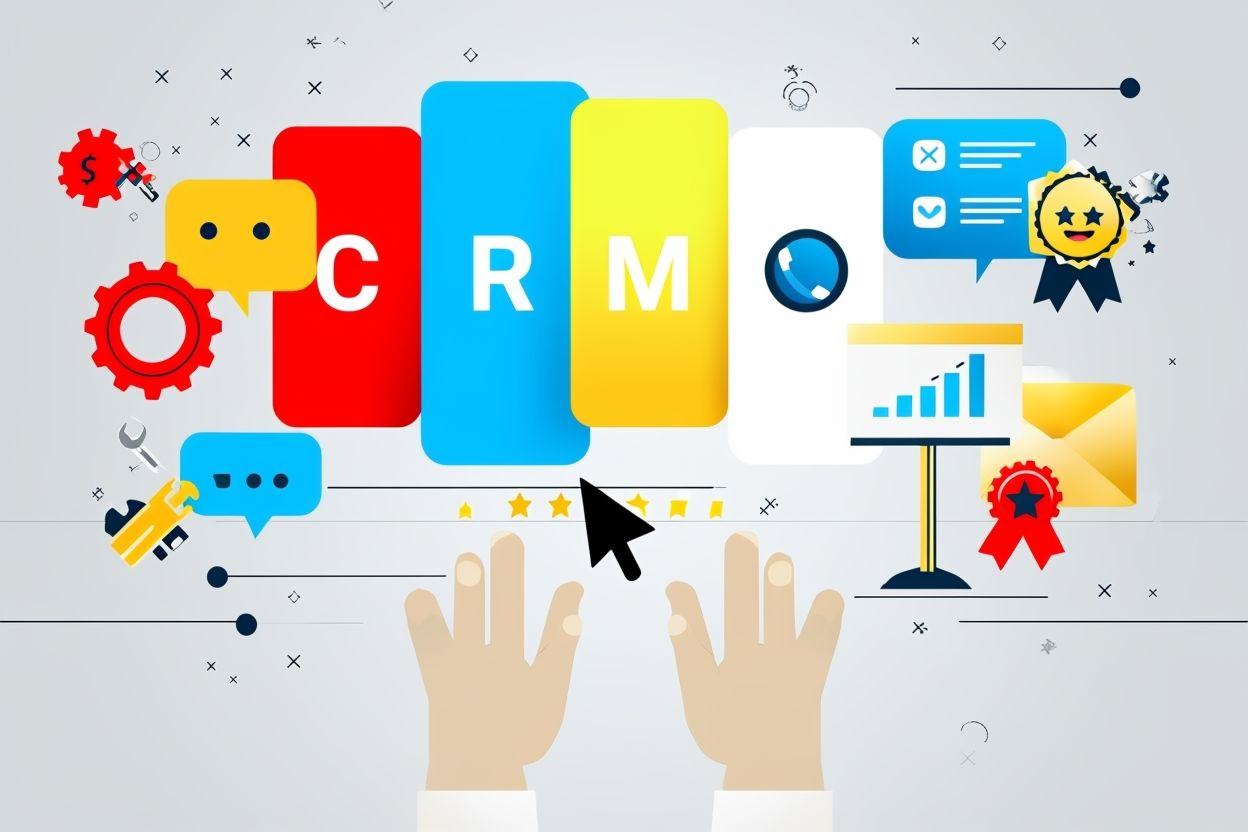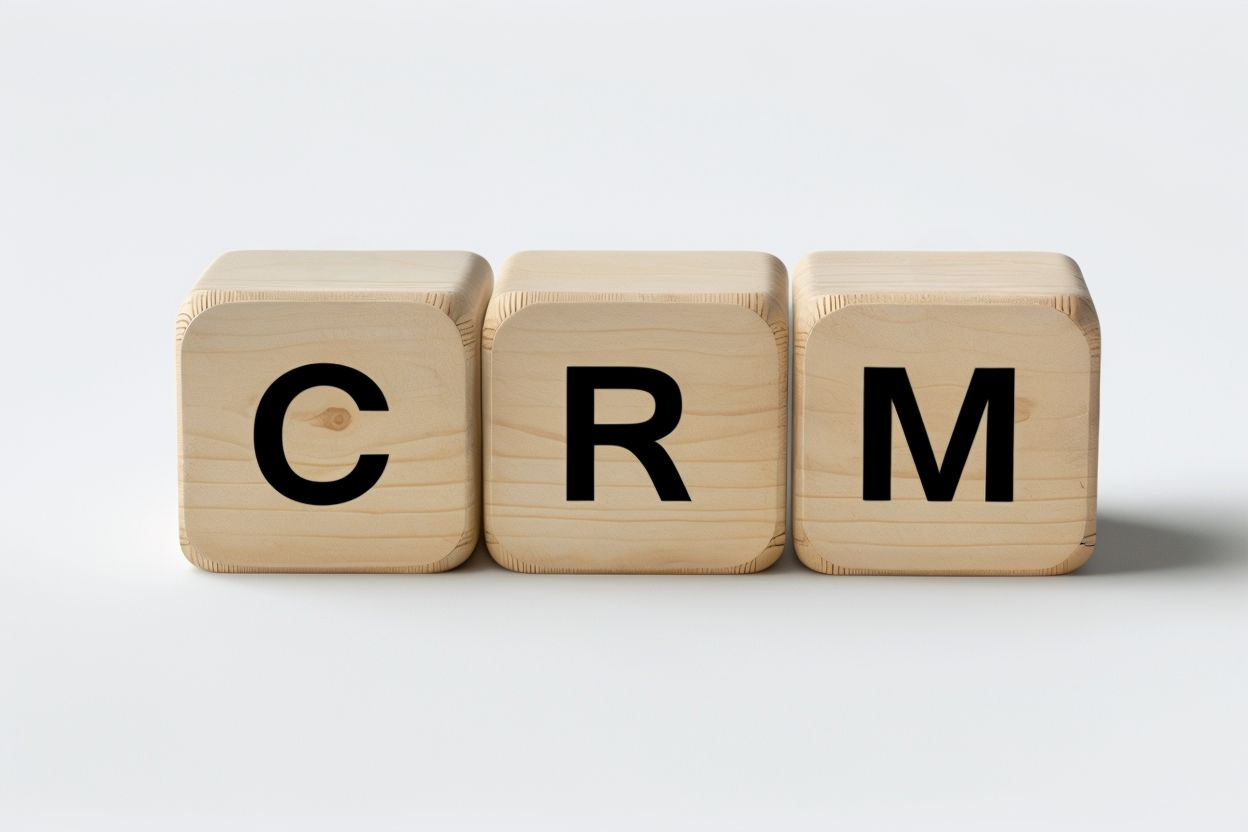What is a CRM and Why Do I Need One? A Comprehensive Guide for Canadian Businesses
Introduction
In today’s fast-paced business environment, staying on top of customer relationships is essential for success. Customer Relationship Management (CRM) systems are powerful tools that help businesses manage and streamline interactions with customers, ensuring a smoother workflow, better customer service, and ultimately, increased sales and retention. Adopting a CRM can significantly improve day-to-day operations and long-term success for Canadian businesses, particularly those with a growing customer base.
In this blog post, we’ll delve into what a CRM is, its primary purpose, and how it benefits Canadian businesses. We’ll also explore the problems CRM systems solve, the importance of CRM today, and how much they cost in Canada. If you're considering adopting a CRM for your business, this guide will walk you through everything you need to know. Let's dive in!
What is a CRM?
A CRM (Customer Relationship Management) system is a type of software designed to help businesses manage and analyze customer interactions and data throughout the customer lifecycle. It allows businesses to streamline processes, improve customer service, and increase profitability. At its core, CRM software helps companies build long-term relationships with their customers by providing a centralized hub to store and access customer information.
How Does a CRM Work?
A CRM system works by collecting data from various channels—such as email, phone calls, social media, website interactions, and more—and storing it in one central location. This enables businesses to track customer interactions, monitor purchasing behaviors, and tailor their sales and marketing efforts to specific customer needs.
Types of CRM Systems
There are three main types of CRM systems:
- Operational CRM: Focuses on automating and improving day-to-day operations like sales, marketing, and customer service. It includes tools for managing customer interactions, contact management, and marketing automation.
- Analytical CRM: Primarily focused on analyzing customer data to provide insights that can improve decision-making. Analytical CRMs often come with powerful data visualization tools, predictive analytics, and reporting functions.
- Collaborative CRM: Aims to improve communication and collaboration across different departments within the company. It ensures that teams like sales, marketing, and customer service are all on the same page when interacting with customers.
Key Features of CRM Systems
Most CRM systems share common features, including:
- Contact management: Storing customer contact details, communication history, and preferences.
- Sales management: Tracking the sales pipeline, forecasting, and managing leads and deals.
- Marketing automation: Automating repetitive marketing tasks like email campaigns, social media posting, and lead nurturing.
- Customer support management: Managing customer service tickets, requests, and queries to ensure fast and efficient resolution.
- Reporting and analytics: Providing actionable insights into sales performance, customer trends, and team performance.
By centralizing customer data, a CRM helps businesses understand their customers better and deliver a more personalized experience, which is essential for improving customer loyalty and satisfaction.

Why is CRM Important for Canadian Businesses?
In Canada’s competitive market, a Customer Relationship Management (CRM) system is essential for businesses to thrive. With rising customer expectations and strict regulatory requirements, CRM tools are necessary to stay ahead. Let’s explore why CRM is crucial for Canadian businesses, focusing on customer expectations, enhancing relationships, and complying with local laws like PIPEDA.
Growing Customer Expectations in Canada
Customers today demand personalized, fast, and seamless experiences. In Canada, where consumer protection is a priority, businesses must meet these expectations while maintaining trust. CRM systems help by:
- Personalization: Gathering data to tailor services to individual needs.
- Timeliness: Automating tasks and follow-ups to provide prompt responses.
- Consistency: Ensuring all teams access the same customer data, delivering a unified experience.
In Canada, where brand loyalty is vital, CRM helps businesses meet these demands and build lasting relationships.
How CRM Enhances Customer Relationships
CRM systems help Canadian businesses strengthen relationships with their customers by:
- Centralized Data: Storing all customer information in one place for easy access and management.
- Omnichannel Support: Engaging customers across multiple platforms while maintaining a unified customer view.
- Segmentation and Targeting: Segmenting customers for tailored marketing campaigns.
- Proactive Engagement: Features like reminders and follow-ups ensure timely interactions with customers.
These CRM features are essential for fostering customer trust and satisfaction in Canadian markets.
CRM and Compliance with Privacy Laws (e.g., PIPEDA)
PIPEDA regulates how businesses collect, use, and store personal data in Canada. CRM systems help ensure compliance by:
- Data Security: Storing sensitive data securely with encryption and role-based access.
- Consent Management: Tracking customer consent to comply with PIPEDA requirements.
- Audit Trails: Documenting actions related to customer data for compliance verification.
- Data Access and Deletion: Providing customers with easy access to their data and enabling data deletion upon request.
In the face of growing regulatory pressure, CRM tools are vital for Canadian businesses to comply with privacy laws and foster customer trust.
What is the Primary Purpose of CRM?
The primary purpose of a Customer Relationship Management (CRM) system is to enhance business-customer relationships by organizing and automating customer-related processes. CRMs improve service, maintain communication, and increase customer satisfaction and loyalty. Here's how:
- Streamlining Customer Interaction CRM centralizes customer data, enabling faster responses and efficient issue resolution, ensuring no interaction is missed.
- Improving Customer ServiceCRMs provide a complete customer history, allowing teams to offer personalized, efficient support.
- Boosting Sales and Revenue CRM tracks leads and opportunities, helping prioritize high-value leads and create personalized offers for more upsells and repeat business.
- Enhancing Collaboration Across TeamsCRM allows sales, marketing, and customer service teams to share data, ensuring seamless communication and a consistent customer experience.
- Increasing Customer RetentionCRM helps identify issues early and supports personalized follow-ups, loyalty programs, and offers, fostering long-term customer loyalty.

What Are the Main Benefits of CRM?
A Customer Relationship Management (CRM) system offers several advantages to Canadian businesses by streamlining processes, enhancing customer interactions, and driving growth. Here are the key benefits:
- Enhanced Customer Experience CRM provides a 360-degree view of customers, helping businesses personalize interactions and anticipate needs, which builds trust and loyalty.
- Improved Data Management CRM centralizes customer data, ensuring accuracy and consistency. It also offers advanced segmentation and analytics, helping businesses create targeted campaigns and make informed decisions.
- Increased Sales and Lead Management CRM tracks leads, automates tasks, and forecasts sales trends, helping businesses prioritize opportunities and increase sales revenue.
- Enhanced Communication Across Teams CRM fosters collaboration by allowing sales, marketing, and customer service teams to share insights, ensuring a consistent and seamless customer experience.
- Improved Customer Retention and LoyaltyCRM helps businesses engage customers with personalized offers, loyalty programs, and automated follow-ups, increasing retention and loyalty.
- Better Marketing Campaigns CRM data allows businesses to create targeted, personalized marketing campaigns across multiple channels, leading to higher engagement.
- Scalable GrowthCRM scales with business growth by managing a larger customer base, adapting to new processes, and supporting team expansion.
What Problems Does a CRM Solve for Canadian Businesses?
A CRM system helps Canadian businesses overcome several common challenges related to managing customer relationships. Here’s how CRM can solve these problems:
- Difficulty in Managing Customer InformationBusinesses often struggle with fragmented customer data across spreadsheets and disconnected systems. A CRM centralizes all customer information in one place, providing a 360-degree view of each customer, which improves service and decision-making.
- Lack of Communication Between TeamsSiloed operations can lead to missed opportunities and inconsistent messaging. CRM breaks down silos by allowing all departments to access shared customer data, improving collaboration and ensuring a seamless customer experience.
- Missed Sales OpportunitiesWithout proper tools, sales teams can miss opportunities. CRM automates follow-ups and nurtures leads through timely emails and reminders, ensuring that no lead is forgotten and increasing conversion rates.
- Poor Customer RetentionTracking customer satisfaction and spotting early signs of churn can be difficult. CRM tracks customer interactions and satisfaction, enabling businesses to proactively engage with at-risk customers and improve retention.
- Inconsistent Customer ServiceInconsistent service can harm customer trust. CRM systems manage support tickets and interactions, ensuring that no request is overlooked and that customers receive timely, personalized responses.
How Much Do CRM Tools Cost in Canada?
The cost of CRM software can vary widely depending on the features offered, the number of users, and the specific needs of your business. For Canadian businesses, understanding CRM pricing is crucial for making an informed decision about which system to implement. In this section, we'll explore the different pricing models, what factors influence the cost, and provide an overview of CRM pricing for businesses in Canada.
Pricing Models for CRM Systems
CRM tools generally offer several pricing models, allowing businesses to choose the best fit for their size, budget, and requirements. Below are the most common pricing structures:
- Subscription-Based Pricing Most CRM systems use a subscription model, where businesses pay a monthly or annual fee based on the number of users and features they require. This model typically includes different tiers, such as:
- Basic Plans: Typically for smaller businesses with basic needs, including contact management and sales automation.
- Advanced Plans: Offer additional features such as reporting, analytics, and marketing automation.
- Enterprise Plans: Designed for larger organizations with more complex needs, offering customization, dedicated support, and integrations with other systems.
- Freemium Model Some CRM platforms offer free versions with limited features, which can be a good starting point for smaller businesses or startups. However, most businesses will eventually need to upgrade to access more advanced features.
- One-Time Payment Less common today, some CRM systems charge a one-time fee for perpetual use. However, this model is more often seen with on-premise solutions, which require installation and maintenance on your own servers.

Factors Affecting CRM Pricing in Canada
When considering CRM pricing, several factors can impact the overall cost:
- Number of Users The more users you have, the more expensive the CRM will be. For businesses with many employees using the CRM (sales teams, customer service reps, marketing teams), the costs can add up quickly. Many CRMs charge per user, so it's important to consider scalability when choosing a solution.
- Features and Integrations Some CRM systems come with a wide range of features, including marketing automation, customer service management, analytics, and custom integrations with other business tools. The more features you require, the higher the cost. For example, advanced reporting tools or AI-powered analytics may come at a premium.
- Customization and Support If you need a high level of customization, or if you want dedicated customer support, this can also drive up the cost. Custom-built CRM solutions or premium support packages are often more expensive.
- Deployment Type Cloud-based CRMs (Software-as-a-Service or SaaS) are typically more affordable than on-premise systems, which require additional infrastructure, maintenance, and IT staff. Cloud-based CRMs are more cost-effective for most small and medium-sized businesses.
The cost of CRM tools in Canada can vary greatly depending on the size of your business, the number of users, and the features you require. While there are free options available, most businesses will benefit from a subscription-based or scalable plan. It's essential to choose a CRM that fits both your budget and business needs, ensuring that you get the most value out of your investment.
Conclusion: Why You Need a CRM for Your Business
In today's competitive market, understanding your customers and effectively managing your relationships with them is more important than ever. A CRM system is not just a tool—it's a strategic asset that helps you build lasting connections with your customers, improve your sales processes, and scale your business efficiently.
For Canadian businesses, the advantages of implementing a CRM system are clear. Whether you're a small startup, a growing mid-sized company, or a large enterprise, a CRM can:
- Streamline communication across teams, ensuring everyone is on the same page and improving collaboration.
- Enhance customer insights, allowing for personalized experiences and targeted marketing strategies.
- Boost sales and revenue by improving lead generation, nurturing, and conversion, while optimizing sales pipelines.
- Increase customer retention and satisfaction by delivering excellent service and building long-term relationships.
- Provide better marketing strategies with better segmentation, targeted campaigns, and integration with other tools.
- Support data-driven decision-making with analytics that help you stay competitive and make informed choices.
In addition, CRM systems help solve key challenges like managing customer information, improving team collaboration, reducing missed sales opportunities, and ensuring consistency in customer service.
If you're ready to take your business to the next level and improve your customer relationships, we offer a flexible and affordable solution tailored to Canadian businesses. Schedule a demo today with Aktok CRM—the all-in-one solution for growing Canadian businesses.

